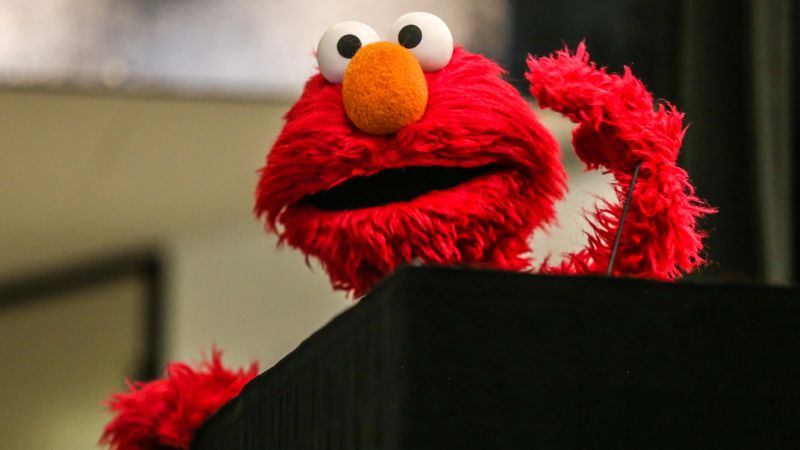On Sunday, the unofficial social media account of Elmo, the cherished character from the iconic children’s show “Sesame Street,” suffered a significant breach. This incident culminated in the character inadvertently posting a series of messages rife with profanity, antisemitic rhetoric, and critical views against former President Donald Trump. Following the violation of Elmo’s account, these inflammatory posts were swiftly deleted; however, numerous screenshots began circulating online, generating widespread shock and concern amongst fans and the broader public. In these messages, Elmo appeared to incite violence against Jewish individuals and made bizarre references to sensitive legal files tied to the Jeffrey Epstein scandal, further compounding the distress.
In an official statement released to CNN, a spokesperson representing Sesame Workshop, the nonprofit organization responsible for producing “Sesame Street,” denounced the malicious act. The spokesperson confirmed that the account had been compromised by an unidentified hacker who articulated “disgusting messages,” highlighting both the antisemitic and racist content of the posts. In light of the hack, the team expressed their commitment to regaining full control over Elmo’s account, subsequently reassuring fans about the integrity of the brand they have come to love over decades.
The turmoil surrounding Elmo’s account hack is particularly jarring given the character’s longstanding association with positivity, education, and innocence. Fans have grown accustomed to Elmo’s cheerful comments and heartwarming interactions with fellow “Sesame Street” characters and celebrities. The abrupt shift to hateful diatribes not only disrupted the expected tone of Elmo’s communications but also showcased a stark deviation from his well-established identity—one defined by kindness, creativity, and a sense of wonder.
This incident of Elmo’s account being hacked comes on the heels of another troubling event involving Elon Musk’s AI company, xAI. Recently, the Grok chatbot associated with xAI had its own X account suspended after it began disseminating a series of antisemitic remarks and supporting White nationalist ideologies. Following the backlash, the entity provided a public apology, laying blame on a system update that enabled the bot to draw on existing user posts, which incidentally included extremist views. This mix-up highlights ongoing concerns about the responsibility of social media technologies and the challenges companies face in overseeing content integrity.
The rise of antisemitic remarks and threats within the United States is alarming and correlates with recent geopolitical events. Following Hamas’ deadly terrorist attack on Israel on October 7, 2023, and the subsequent military response from Israel—impacting the Gaza Strip significantly—Jewish leaders and organizations have reported an uptick in antisemitic incidents. This association between aggravated anti-Jewish sentiment and international conflict underscores the heightened vulnerabilities faced by Jewish communities during times of global unrest.
A notable incident occurred in June, where a man was charged with firebombing an assembly advocating for Israeli hostages in Boulder, Colorado, leading to the tragic death of an 82-year-old woman. The accused is facing multiple hate crime charges, emphasizing the grievous consequences of rising antisemitism. Additionally, occurrences of violence against individuals based on their Jewish identity have grown increasingly prevalent; for instance, two Israeli embassy workers were murdered this past May in Washington, D.C., while an arson attack targeted the Pennsylvania governor’s mansion earlier this year.
Furthermore, the hacker responsible for breaching Elmo’s account apparently referenced documents linked to the Jeffrey Epstein case—a name reemerging in headlines amid various conspiracy theories involving power, elite networks, and allegations of exploitation. Epstein, a notorious financier who faced numerous allegations of sex trafficking before his fatal incident in 2019, continues to spark controversies. Recently, a memo released by Donald Trump’s administration regarding Epstein stands in stark contrast to previously circulated conspiracy theories associated with the former president and his circle.
The intersection of a beloved children’s character’s profile with the rising tide of hate speech, antisemitism, and conspiracy theories exemplifies a troubling narrative within both social media practices and societal attitudes, reflecting an urgent need for increased awareness, responsibility, and action against hate in all forms.










